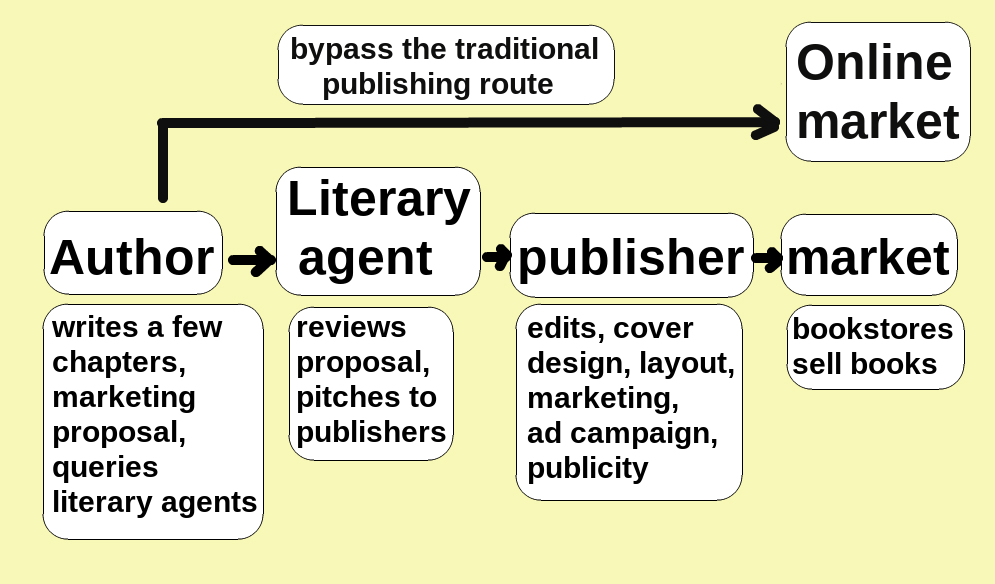For as long as I can remember, stories have been my constant companion; those I read, those I made up, those I spun from the fragments of others’ tales. Without wishing to sound overly clichéd, writing is unequivocally my calling.
Let’s fast-forward then from six-year-old Alice’s story about the fairy princess to twenty-two-year-old Alice, who had just written her first full length manuscript (which was produced immediately after I finished what I like to refer to as the rite of passage ‘draw manuscript’). As I wrote its sequel, I began to query agents and publishers. The process goes something like this:
Trawl through the various online lists of agents (generally in America as they have the biggest market). Find people who are accepting cold queries. Look on their website to see if the agency seems like somewhere with which you’d be comfortable working. Look at the minutia of the agent’s profile, social media accounts, and books they’ve repped to see if your MS is actually likely to interest them. Tailor your pitch letter to them. Send it and await a response. If you’re lucky, get a reply. The routine for publishers is a variation on the theme.
It’s a time-consuming and very demoralising process, and there is a plethora of (at best overly simplistic and at worst contradictory) information out there which will supposedly tell you exactly how to get agents or publishers to reply to you positively.
As the months marched onwards, I produced not only another manuscript, but another three manuscripts. I made another round of pitches and queries with a different manuscript – one which I felt may be a bit more interesting to someone who’d never heard of me. The process was the same.
Now, you may be thinking ‘maybe her manuscript just wasn’t very good’. And perhaps it didn’t have the polish or ‘something extra’ which distinguished it from the slush pile. But the manuscript which became Queendom of the Seven Lakes in fact has been really well received by those who’ve read it.
Understanding why exactly I didn’t make any headway with the pitching progress is difficult. Perhaps I gave up too early. Perhaps I just was unlucky in that my work got read when the individual in question was a bit tired and couldn’t find the energy to engage with any of the words they read that day. Maybe the agent or publisher had read five similar manuscripts that day, thought to themselves ‘if I read another fantasy book about an assassin I’m going to scream’, and then went onto mine, whose protagonist is an assassin. The reality is that with the proliferation of the internet, anybody who has a wifi connection and Microsoft word can send their writings to agents and publishers. The pool of queries to agents is far larger than it used to be, and probably diluted in terms of talent, too. Back in the day, you had to be possessed of the commitment to buy a guide to agents, find the people you wanted, print out your beloved manuscript, go down to the post office to mail it, and include a self-addressed envelope. Those are a lot of barriers to stopping someone who does have that level of dedication from actually sending their not particularly well-edited opus magnum off for literary rejection. Now, it’s as simple as a Google search and the click of a button.
Indie publishing comes in here. I had a backlog of manuscripts (even now, having published three, I have another five completed which will be forthcoming in the next couple of years pending a thorough edit or five), and I had the benefit of youth which meant I have the time and financial latitude to invest in kickstarting a writing career. I had the hunger to become a published author, and I also had the desire for action rather than waiting for a reply which may never arrive.
More than that, I arrived at the realisation that even if I landed an agent, they still had to find a publisher who would be willing to take on my work, which could take years. If I ended up lucky enough to have a publisher accept my work, it would still be, in the most optimistic of timelines, a year before my book actually made its way in to the world. I wanted my career to start now, to start building a brand and name for myself as a writer.
 By Tomwsulcer – Own work, CC0,
By Tomwsulcer – Own work, CC0,
https://commons.wikimedia.org/w/index.php?curid=65759981
So I self-published. My logic, aside from everything else, was that if I ever do go into a meeting with a publisher or agent, I have something with which to distinguish myself from the aforementioned masses who posses a word processor and a wifi connection: a book which (hopefully) people liked, and the demonstrative willingness to work hard for my success.
The success stories of self-published authors who went on to be picked up by traditional publishers are well-known: E L James and the 50 Shades of Grey phenomenon, Matthew Reilly, and C S Pacat are the three which spring to my mind (the latter two are Australian examples, which makes my little heart beat with patriotic pride).
Obviously, they are the exceptions rather than the rule, but in their existence is the lesson that there is merit in self-publishing, and it can in fact be a viable way to build your career as an author.
It was a decision I made which I absolutely do not regret, and it has brought me so much that I simply could not ever have anticipated. In short, the route of traditional publishing is one which is a really safe and viable way to get your work into the world. But I wasn’t willing to wait around for someone to maybe like my book. I back my writing, and I knew that getting it out into the world was what would make me happiest, and be the best way for my career to actually start.
If you were interested in hearing about indie publishing, Euan Mitchell’s interview on The Garrett podcast had some interesting insights into the experience and decisions he made to self-publish much of his work. But I’m going to go into a bit more of the process behind getting a manuscript to a final product in the next instalment.















I couldn’t agree more. Even if an author is determined to reach an agent and receive an offer in return – self publishing is still a great way to go. Well said!